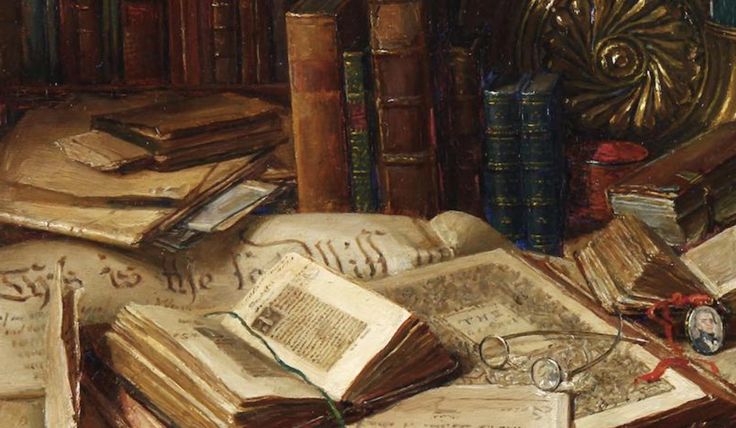Why Literature is Important ?
The Origins of Literature
Thousands of years ago, our cave-dwelling ancestors would gather around a campfire at night and share stories - stories of hunts, tales of their forefathers, and myths of their gods and deities. This act of storytelling was a common exercise even in times when our lives revolved around hunting, foraging and reproducing. Why? Because these stories were the result of their interaction with their environment, it served as a guide for their survival and how they should understand the world around them. You could call it the earliest form of theoretical learning. This storytelling evolved alongside us, from oral tradition to etchings on cave walls and illustrations on clay tablets, hieroglyphs & cuneiform, eventually reaching papyrus scrolls and books. This is the origins of what we call "Literature".
Literature originated in different civilizations in different forms and took different shapes throughout history. "The Epic of Gilgamesh" - a long poetic epic written in the cuneiform script of the Sumerian civilization, "The Pyramid Texts" of Egyptians written in hieroglyphs, Homer's "Odyssey" - a Greek masterpiece...all are examples of literature quite unique in their own ways, yet all share one common quality - the human need to communicate a shared understanding. This liberates literature from the boundaries of time and space, making it an immortal and invisible connection.

Literature as a Cultural Force
But how does it make literature a cultural force or a driving factor in social change?
In the words of W.H. Hudson, "Literature is a product of the society." But it is not just a product, it is also a reactant. Let’s dive into a bit of chemistry here, in a reaction the reactants are the forces at play and the product is the outcome of said reaction. And in a looping reaction, the product in turn acts as a reactant. In this analogy, the dynamic between the people and the society is the reaction which creates literature. This creation again influences and shapes the factors (society) which led to its creation.
The iteration of this continuous input-output loop has actually shaped the very societies we live in today. This phenomenon can be better understood with an example: a female writer living in a patriarchal culture who experienced gender discrimination and oppression might be greatly moved by the predicament of women in her society. Through this inspiration, she created a feminist literature that sparked controversy at her time but also broke the mold and defied norms to inspire a change in thought and identity regarding the situation. Though it might not directly cause these changes, such works contribute so significantly that, decades later, that literature is seen as a reformative piece and the writer is hailed as an icon of reform.

Literature and Social Reform
Literature is a mirror that shoves the ugly face of society in front of it, challenging its flaws and evils. This brutal confrontation with reality shatters misconceptions and propels change. For instance, Saadat Hassan Manto, a prominent Urdu writer, used to offer a very raw and unfiltered depiction of the darker realities of our culture and the psychology of people regarding societal norms in his writings. He was heavily criticized and also held on trial for being vulgar and offensive, to which he famously replied, "If you cannot bear these stories then the society is unbearable. Who am I to remove the clothes of this society, which itself is naked. I don't even try to cover it, because it is not my job, that's the job of dressmakers."
But literature is not just a mirror - it is also a glass display that showcases the brighter side of humanity, the ideals we strive for, and the values we uphold. It sets a standard for a yet-unrealized greatness and inspires us to achieve it. Humanity, if it was not striving for change or betterment, would still be in the dark ages. We have always strived for a higher ideal or chasing a utopian fantasy. For that to succeed, we must have a shared understanding of the idea. A great example of this is religious texts that served as a basis to unite people under a same belief system, gave them a single purpose and a code of conduct like the Bible or Vedas etc. "The Communist Manifesto" is a political doctrine that reshaped the geopolitical landscape of Europe as the philosophy of a social revolution.
Since my childhood I have heard the phrase, "Pen is mightier than the sword" countless times and always thought it a fancy hyperbole. But when I actually understood the significance of this, it could not be truer for me. I have the privilege of being born and raised in a country where the armed forces are held in great regard due to the numerous times they have stepped up to defend my homeland, but also to usurp power and enforce marshal law. In such times when the voice of people was silenced by might, few took to the pen to stand up against oppression. Faiz Ahmad Faiz is one such poet who stood defiant in the face of tyranny, rallying the nation through his poetry being the voice of rebellion. How long is a poem? And what is a poem but words on paper? Yet it held enough power to shake the very foundations of the oppressive regime.
To define literature is to realize it is much more than ink on paper- it is the ideas that change minds and shape societies. It is the thread that binds people through time and space. It is the fossil of those who lived and the blueprint for those yet to come. It is the cry of resistance and the anthem of freedom. It is the essence of humanity, preserved.
Author & Researcher: Mazhar Iqbal